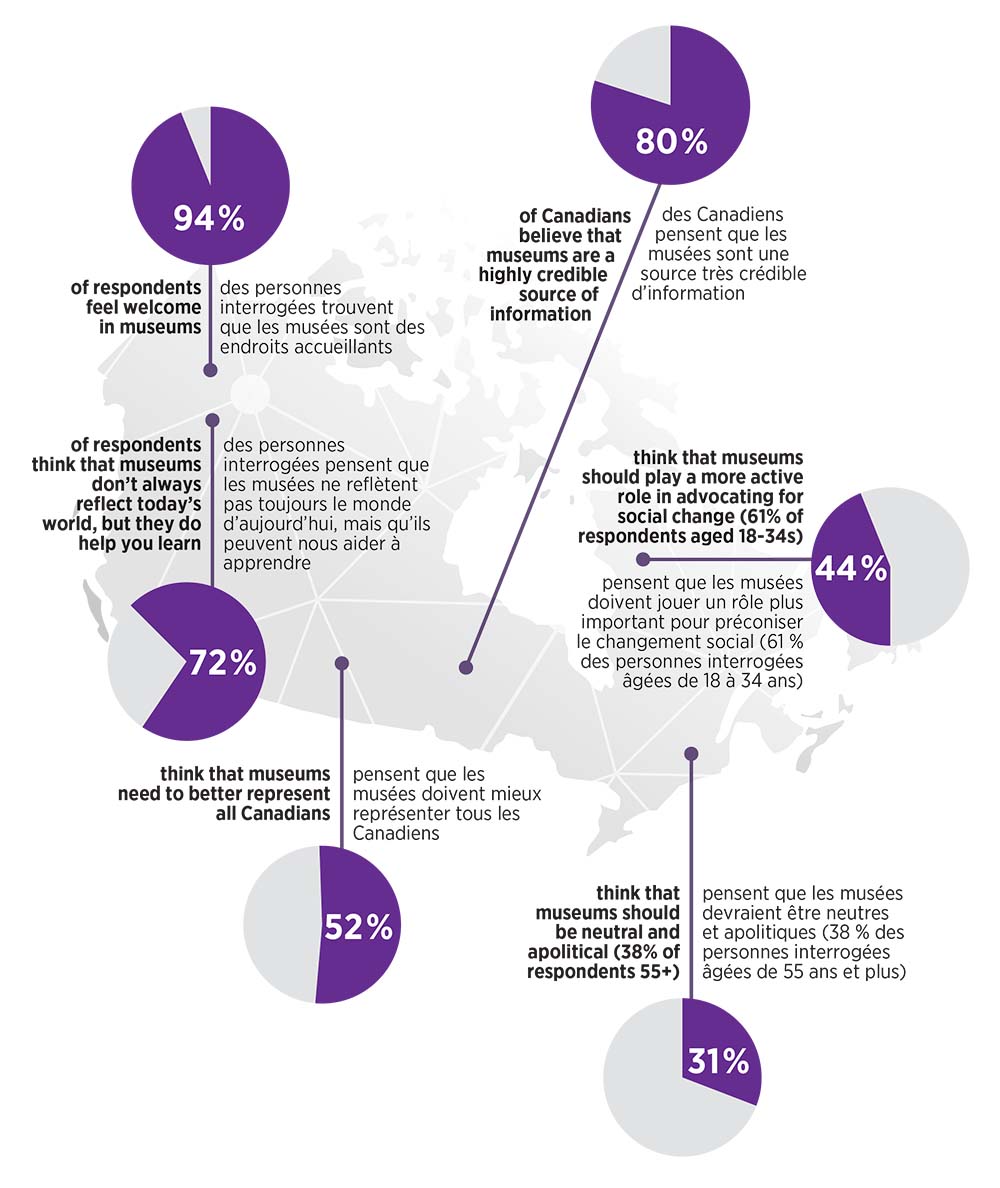Reconsidering Museums
Caroline Loewen
What do Canadians see as the value of museums for them, their communities, and for Canada? In 2020, a national three-year project, Reconsidering Museums, set out to answer this question.
Launched by the consortium of provincial and territorial museum associations (PTMAs) in collaboration with the CMA, the first phase of the project was to listen to Canadians. In fall of 2020, a public engagement campaign, Museums for Me, asked Canadians, from all regions and with a diverse set backgrounds and interests, what do museums mean to you? Collecting responses with an online survey, public opinion polling, and virtual dialogue sessions, taken together, we reached over half a million Canadians through the campaign and recorded the opinions of over 3000 Canadians from across the country.
The results of the engagement affirmed what many museum professionals already intuitively know, but also offered some surprises and opportunities for growth. Canadians value museums and see them as places for preservation, storytelling, education, and enjoyment. According to the data collected, museums are spaces where most people feel safe, welcome, and included. At a time when confidence in public institutions is increasingly tenuous, museums continue to hold the trust of Canadians.
However, our research has revealed that there is still work to be done. Despite having confidence that museums can help you learn, there is a perception that museums don’t always reflect today’s world. Over half of respondents think museums need to do more to better represent all Canadians. They frequently spoke about the importance of truth, storytelling, perspectives, and inclusion as ways that museums can better serve their communities. The Canadian public has an expectation that museums tell all sides of a story, interpret our past to better understand the present and the future, and address societal issues like climate change, inequality, innovation, and reconciliation. How we do this will have tremendous implications for the future of museums and their role in society.
The data also presents some competing priorities, specifically generational disagreement about the role of the museum. We found that younger respondents aged 18 - 34 are more likely to think that museums should advocate for social change, while older (55+) respondents are more likely to think that museums should be neutral and apolitical. The challenge for museums going forward will be to bridge the gap between these competing expectations.

What is next
What has been shared here is only a portion of the total findings of our engagement work. We are currently working to expand certain areas of research where we feel more feedback is necessary, including working with CMA’s Reconciliation Program to deepen our understanding of how museums are perceived within Indigenous communities.
We will also be creating something for museums. In the fall of 2022, we will be launching an online hub and toolkit for museums to get support in reaching out to their communities and deepening their relationship, and therefore their relevance, to the Canadian public.
Through a rearticulation of the value of museums and a rebrand of the sector, we hope that museums will come away with the tools and language necessary to continue to do museum work in ways that better connect with and serve the public. M
Caroline Loewen is the Project Lead for Reconsidering Museums. She is a Calgary-based curator, writer, and museum worker. She is passionate about helping museums become more inclusive, accessible, and engaging spaces, where a diversity of voices and perspectives are included and valued.
For more information on the Reconsidering Museums project and Museums and Me initiative, visit https://www.museumsforme.ca
